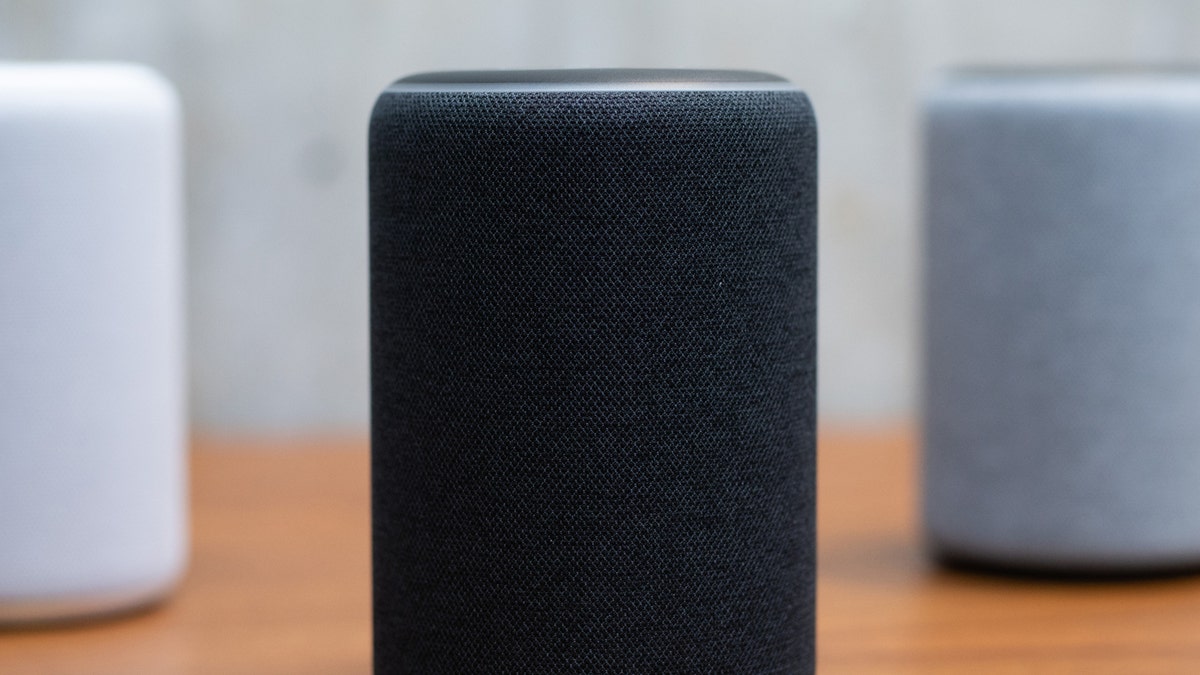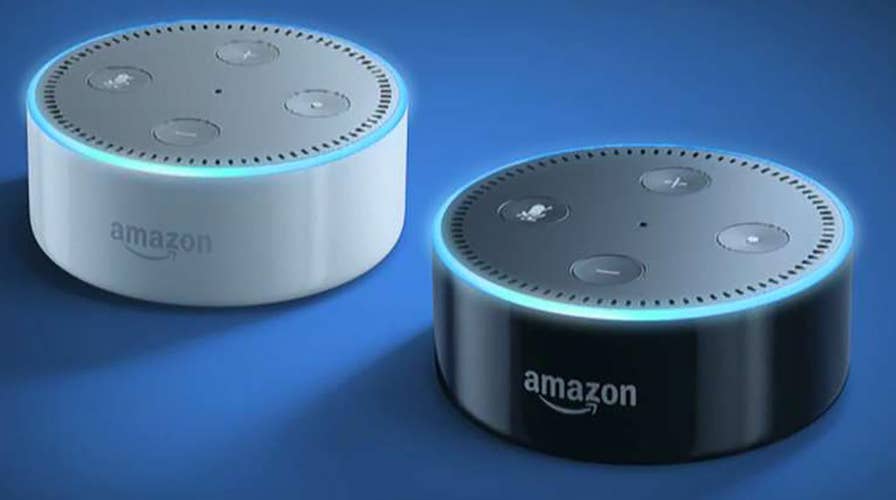Amazon's Alexa isn't just AI, thousands of humans could be listening to you
Kurt 'The Cyber Guy' Knutsson breaks down how to keep Alexa from listening in.
Think of all the things a microphone can pick up: voices, noises, whispers, conversations, arguments, confessions – even people alone, in a room, mumbling to themselves. Think of all the things you say in a private space, all the weird things you do. Once those sounds have been saved, that data can be stored, edited, and manipulated and shared.
Now, think of all the things a camera can see, record, save, and share with who knows who. Speaking of, if you're in a vacation rental, there's no guarantee hidden cameras are not in play. Tap or click here to learn the tricks to spotting hidden cameras in vacation rentals.
Smart devices can work miracles, obeying your every command. In return, they may transmit everything about you to a programmer in a city you’ve never heard of. Even services that seem benevolent, like smoking-cessation and mental health apps, have been quietly sharing sensitive info about their users. Tap or click here for a shocking report.
Since so many smart devices are collecting personal data on us, it begs the question: What do data miners use all this information for? What do the raw statistics of our lives matter to the likes of Google, Apple, or Amazon? Gathering and storing all those files takes a lot of effort, so what’s the payoff? And how concerned should we be that tech giants are hoarding such everyday intelligence?
Remember, personal data can be abused or stolen, no matter how trivial, and cyber-criminals are currently combing through millions of filched email addresses, mortgage documents, and even medical records.
Generally, developers say that these data points help their smart devices run better. You may believe that, or you may not. You may feel comfortable with it, or you may be weirded out. Whatever the case, there are often ways to avoid observation. Read on to see what data these gadgets collect and what you can do about it.

The Amazon Alexa Plus is on display in Seattle. (Getty Images)
Amazon Echo
For Amazon Echo to work, the microphone has to hear its “wake phrase.” Echo records every single command and keeps those audio files in a special database. To developers, this is a way to refine the technology and cater to your specific voice patterns.
The more data the system collects, the better it will understand and respond to you. But many users find this disturbing.
In the case of Alexa, the easiest way to delete everything you said in the past day is to literally say, “Alexa, delete everything I said today.” I know, it sounds like wishing for more wishes, but Amazon assures us the trick works, at least for recent commands.
There's still the problems of Alexa always listening and what to do about your old recordings.
Let's tackle the old recordings first. Unless the delete command is expanded to include all recordings, you still have to remove old files manually. Here's what to do:
- Open the Alexa app and go into the "Settings" section.
- Select "History" and you'll see a list of all the entries.
- Select an entry and tap the Delete button.
- If you want to delete all the recordings with a single click, you must visit the "Manage Your Content and Devices" page at amazon.com/mycd.
As for Alexa and Echo devices always listening, well you could turn off each of the devices, but then what's the point of having them? The real issue, we discovered, is that Amazon employees around the world are listening to us and making transcriptions.
Here's how to stop that:
- Open the Alexa app on your phone.
- Tap the menu button on the top left of the screen.
- Select "Settings" then "Alexa Account."
- Choose "Alexa Privacy."
- Select "Manage how your data improves Alexa."
- Turn off the toggle next to "Help Develop New Features."
- Turn off the toggle next to your name under "Use Messages to Improve Transcriptions."
Google Assistant
Google Assistant has the "OK Google" wake-up call, but the company introduced the My Account tool that lets you access your recordings and delete them if you want. You can also tell Google to stop recording your voice for good.
Here’s how to turn off the "OK Google" wake phrase: On Android, go to Settings >> Google >> Search & Now >> Voice and turn "OK Google" detection off.
Siri and iPhone Tracking Apps
Siri doesn’t have the same “virtual assistant” cachet as Echo and Home, but it does have a wake phrase, which means it’s always listening for the words “Hey Siri.”
To prevent this unwanted surveillance, just do the following: On your iPhone, go to Settings >> Siri & Search >> toggle off "Listen for Hey Siri."
Apple was recently criticized for harvesting data while you sleep and sending it to third parties. Apple has historically avoided flak for these types of privacy issues, but these apps slipped through the cracks … while you were sleeping.
To terminate this data collection, open the Settings app, then select General, and then Background App Refresh. Here, you'll be able to turn the feature off for specific apps -- or for the whole phone altogether.
So, what do they do with the data?
To get back to what started this column, the question is, what do companies like Google, Amazon and Apple do with your data? Well, we hope they do what they say they do, which is use it to improve technology and make our lives easier and more enjoyable.
I've been doing this too long to believe that it's all about our benefit. This data can be used to target you with advertisements, as well as to determine things like how much you pay for insurance, whether you are potentially a good employee and other things you never intended your data to be used for.
What do you think? Are your smart speaker lover or hater? Drop me a line at Twitter.com/KimKomando.
What digital lifestyle questions do you have? Call Kim’s national radio show and tap or click here to find it on your local radio station. You can listen to or watch the Kim Komando Show on your phone, tablet, television or computer.
Copyright 2019, WestStar Multimedia Entertainment. All rights reserved.
Learn about all the latest technology on the Kim Komando Show, the nation's largest weekend radio talk show. Kim takes calls and dispenses advice on today's digital lifestyle, from smartphones and tablets to online privacy and data hacks. For her daily tips, free newsletters and more, visit her website at









































